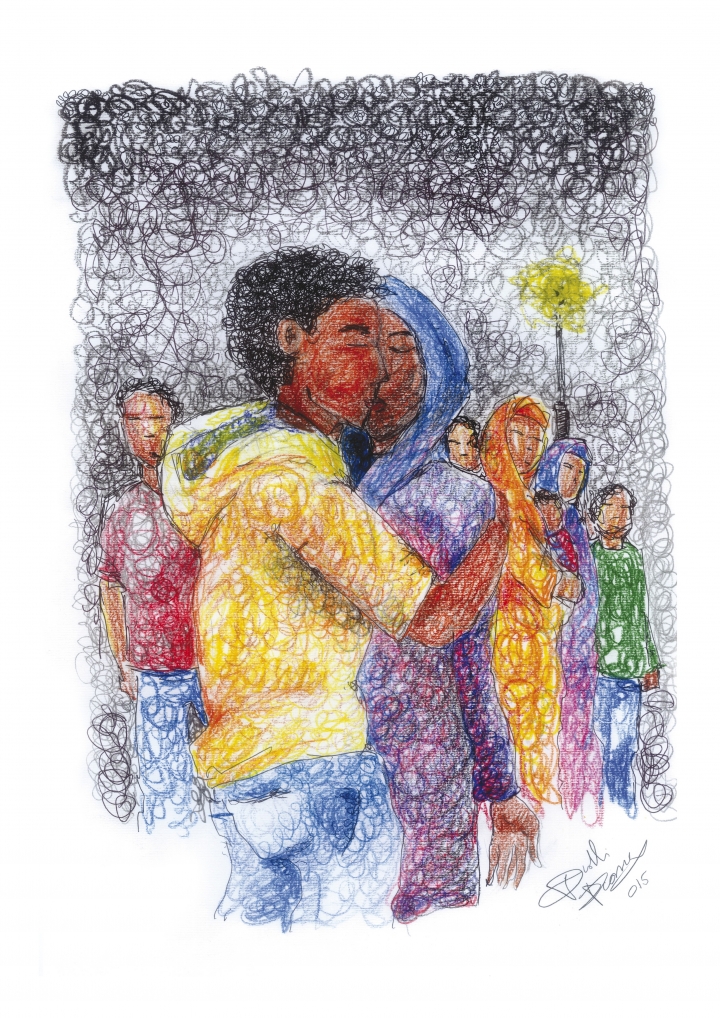
Story:
Happy endings are hard to come by on the island of Lamepedusa. For one thing, even the migrants who survive the journey to this tiny island gateway to Europe have a long way to go before they reach anything that could be described as a “happy ending.” Nevertheless, there are glimmers of hope. The kiss of this young couple radiates both relief and hope. “We made it!” it exclaims. Hope—like the island of Lampedusa itself—persists in a sea of suffering.
Bible Reading: Exodus 23:9
Empathy is the ability to understand and share the feelings of another. God is counting on both empathy and memory to reinforce this command in Exodus 23:9: “You shall not oppress a stranger, for you know the feelings of the stranger, having yourselves been strangers in the land of Egypt” (JPS).
God’s appeal must have had a powerful impact on the newly liberated covenant people. One wonders if it could have a similar impact on many of us.
Consider, for instance, this statistic: In the years between 1892 and 1954, approximately 12 million immigrants passed through the immigrant inspection station on Ellis Island. Were your ancestors among them? Mine were. I can’t help but wonder if my great-great-great grandparents shared a kiss of hope like the one in the picture.
Discussion/Reflection:
- Were your ancestors immigrants? If so, how does that affect the way you view contemporary migrants?
- What does it feel like to be a stranger in a strange land? To what degree can empathy and memory help us engage the contemporary conversation around migrants and refugees?
Action:
- Research your own family’s story.
- Read more about the island of Lampedusa in this March 26, 2019 editorial: A Look from the Border.
Prayer: Forgive us for our short memories. Forgive us for our lack of empathy. Forgive us when we are quick to accept God’s grace for ourselves, but slow to show grace to others.
